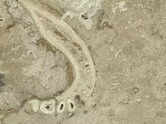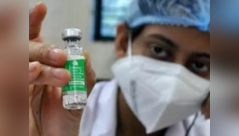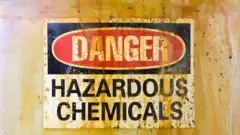01/9October is observed as breast cancer awareness month

Breast cancer remains one of the most prevalent cancers worldwide, affecting millions of women. As we observe Breast Cancer Awareness Month in 2023, it's essential to address misconceptions surrounding this disease. As per a study, conducted in 2020, breast cancer accounted for 13.5% of all cancer cases and 10.6% (around 90000) of all fatalities in India. Let's debunk 7 common myths and provide you with the facts to promote a better understanding of breast cancer.
02/9What is breast cancer?


Breast cancer is a type of cancer that originates in the cells of the breast. It occurs when abnormal cells in the breast begin to grow uncontrollably, forming a lump or mass of tissue called a tumor, according to US Centers for Disease Control and Prevention (US CDC). The majority of breast cancers are diagnosed in women over the age of 50. These cancerous cells can invade nearby tissues and, in some cases, spread to other parts of the body through the bloodstream or lymphatic system. Breast cancer can affect both women and men, but it is much more common in women. There are several different types of breast cancer, and they can be classified based on the specific cells or tissues within the breast where the cancer starts.
03/9Myth: No family history of breast cancer, hence I am not at risk


Most people diagnosed with breast cancer have no known family history of the disease. While some cases are hereditary, comprising only 5-10%, the majority of breast cancers result from factors like environment and lifestyle. The primary risk factors are gender and aging. Healthy breast cells can develop mutations over time, leading to cancer. However, if you have a strong family history of breast cancer, consult your doctor.
04/9Myth: Breast injury are the cause of breast cancer


Breast injuries, such as those from accidents or blows, do not cause cancer. They may lead to pain, bruising, or bleeding, resulting in conditions like hematomas or fat necrosis. Occasionally, a breast cancer diagnosis may follow an injury, but the injury itself does not cause cancer. It's important to inform your doctor of any prior injuries or unusual breast changes.
05/9Myth: Underwired bras can cause breast cancer


Bras, including those with underwire, do not cause cancer. There is no scientific evidence supporting the myth that underwire bras restrict lymph fluid flow. Finding a well-fitting bra that suits your comfort is crucial, regardless of whether it has underwires.
06/9Myth: Carrying a phone in your bra can cause breast cancer


While it's not the most comfortable choice, carrying your cell phone in your bra does not cause breast cancer. Studies have found no link between phone use and cancer. To prevent potential skin issues, it's advisable to carry your phone in a bag, purse, or pocket instead.
07/9Myth: Breast cancer only affects women and not men


Contrary to this belief, a man is also likely to get breast cancer though the percentage might be small. Men should also perform breast self-exams and promptly report any changes to their physicians. Awareness among men is lower, leading to delayed treatment and higher mortality rates.
08/9Myth: An X-ray can cause breast cancer or spread it


Mammograms, or breast x-rays, are essential for early breast cancer detection. Breast compression during mammograms does not cause or spread cancer. Tighter compression yields clearer images. The radiation exposure in mammograms is extremely low and poses minimal risk. Follow your physician's recommendations for mammographic screenings, typically starting at age 40.
09/9Myth: Antiperspirants and deodorants cause breast cancer


There is no conclusive evidence linking the use of underarm antiperspirants or deodorants to the development of breast cancer, according to researchers at the American Cancer Society.













































































































closecomments
SIGN IN WITH
GoogleEmail